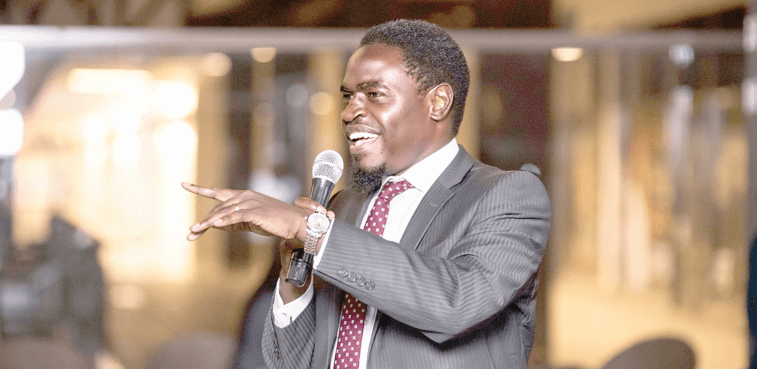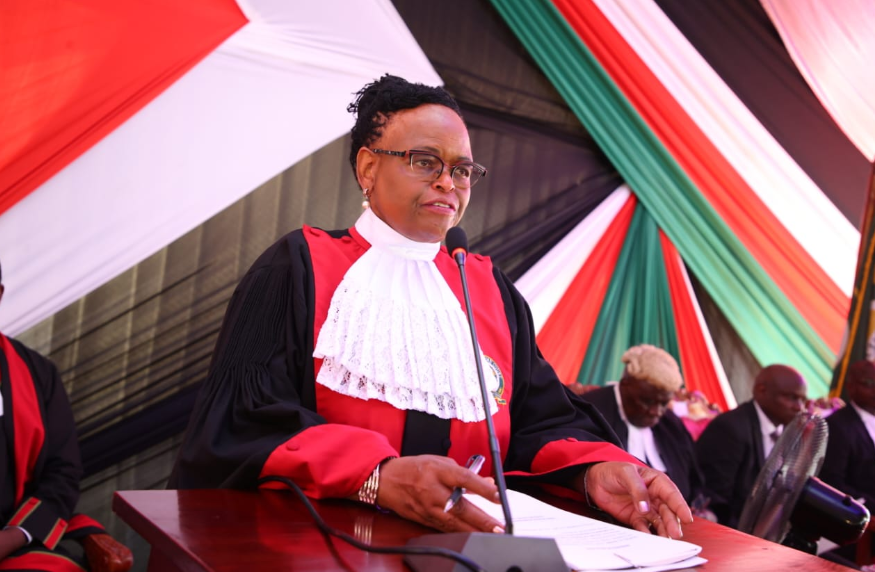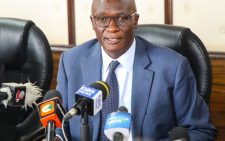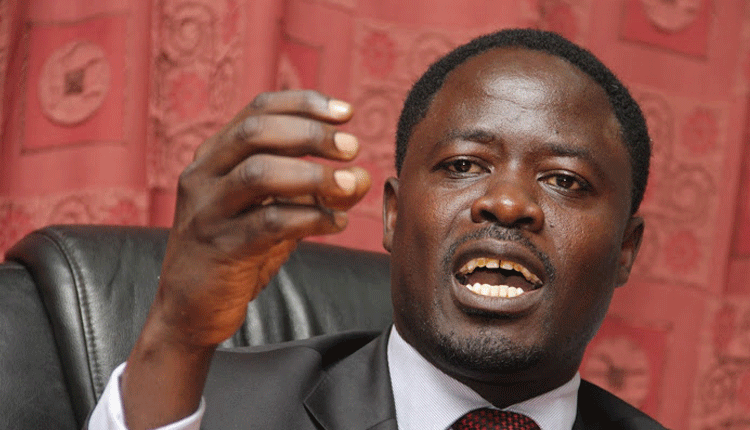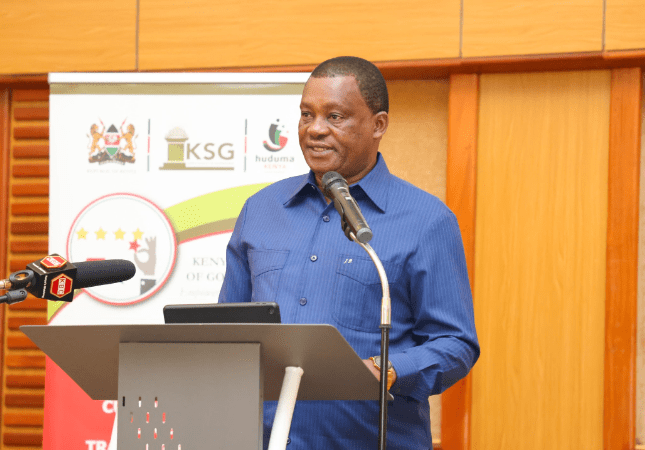Koome first acid test ahead of Supreme Court BBI ruling
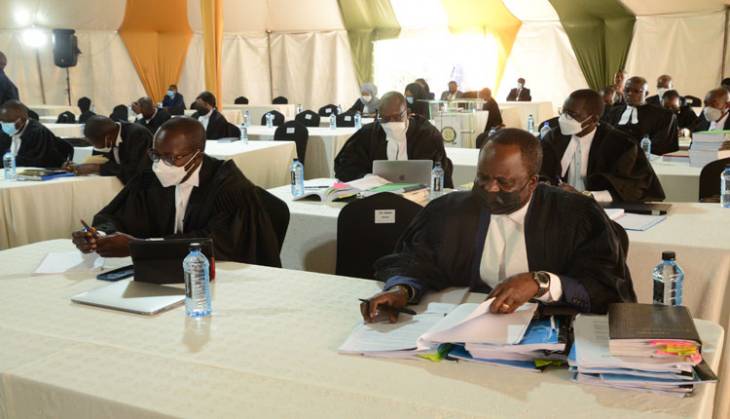
Chief Justice Martha Koome faces an acid test when she delivers the most consequential judicial decision since her appointment to the position.
Lady Justice Koome will lead the seven-judge bench of the Supreme Court in ruling on the Building Bridges Initiative (BBI) appeal case.
The Supreme Court has been hearing the petition against the August 2021, Court of Appeal declaration that the BBI Bill was “unconstitutional, null and void” for the past three days.
BBI was the brainchild of President Uhuru Kenyatta and former Prime Minister Raila Odinga, and it made a raft of proposals, that could see radical changes to the Constitution.
Appellate court not only held that the President cannot institute constitutional amendments through a popular initiative but also that civic proceedings can be activated against him while still in office.
BBI case has been of huge interest to politicians and legal scholars. Its fate now lies in the hands of the seven judges as both proponents and opponents put their best foot forward, to convince them to rule in their favour.
Creative mind
The three-day sitting, which came to a close yesterday, ended on a high, with the judges expected to make a determination on seven issues passionately argued by both parties.
After the hearing, Justice Koome said their decision will be rendered “on notice”.
The judges are expected to determine whether certain sections of the Constitution are protected from amendment, technically known as the Basic Structure Doctrine and whether the President can initiate changes/amendments to the Constitution.
They will also determine whether a constitutional amendment can only be initiated by Parliament through a parliamentary initiative or through a popular initiative.
Other issues include whether civil proceedings can be instituted against the President or a person performing the functions of the office of the President, whether there was Public Participation and the quorum of teh Independent Electoral and Boundaries Commission (IEBC).
Veteran lawyer John Khaminwa, who represents Kituo cha Sheria, almost broke down while appealing to the judges not to forget the history, that the country went through during the Nyayo era.
An emotional Khaminwa, showed the court a book which had the history of Nyayo era torture victims, arguing some individuals wanted to take the country back to the said era.
“I have got a book here, a sad book. We lived to tell the Nyayo story. I am almost crying. These were people who were tortured who were locked in cells with water. Some of them thereafter died immediately.
They were not fortunate to live as long as Khaminwa is living. It shows the history of Kenya,” Khaminwa, a former detainee, told judges.
The veteran lawyer argued that the Kenyan Constitution was drafted in a manner that was tailored to make it unamendable, the idea being that allowing changes would leave the country with no Constitution.
“The current politicians, there is very little to admire them for; they are job seekers, office seekers, they come with amendment of the Constitution because they want to be in power,” he argued.
Requisite quorum
Khaminwa noted that to look after a country, one must have a creative mind where they are able to come up with ideas that can rule the country.
“When you have a politician who runs out of ideas, what he will tell you is let us amend the Constitution. Some of the problems we have are because of the frivolous amendment of the Constitution,” said Khaminwa.
Muslims for Human Rights (Muhuri) through lawyer Caroline Kituku on their part, tore into the IEBC quorum saying that three commissioners cannot form a quorum of IEBC.
Kituku argued that the High Court had ruled that in the absence of a legal framework to govern the processes of collection and verification of signatures, IEBC could not undertake its mandate satisfactorily.
“Similarly, the Court of Appeal upheld this finding of the High Court. The court had ruled that those procedures were enacted without the requisite quorum and number two, they were in violation of the Statutory Instrument Act,” she said.
Kituku said that the argument by IEBC that the composition ought to be three as stipulated in the Constitution and not as set out in the Second Schedule of the IEBC act, was bad in law.
“What would happen if we are to agree with the submissions of the appellant, that the quorum ought to be three and not five? ,” she argued.
Elisha Ongoya and Evans Ogada who represented Justus Juma and Isaac Ogola also asked the Supreme Court to give an authoritative impartial interpretation of the Constitution regarding the BBI Bill.
“We will remind each other that we have a history as a country and that history has taught us some lessons, some of them very fundamental. Fortunately for us a bulk of the counsel appearing at this podium, seeking to make this monumental determination, have been a part of that history as citizens of this country,” said Ongoya.
Dangerous rodent
Ongoya urged the judges not to let down the generations that will follow by delivering a verdict, that may make generations to come to have to live through some of the pains we have lived through. “Part of those pains were captured by retired Justice Aaron Ringera in the case of Njoya versus the Attorney General, which you have been referred to and shall implore you to read and have it inform your verdict.”
“Attempt at clawing back on the Constitution that appear in innocuous sometimes, you must be hawk-eyed to see them for what they are, particularly if they’re dangerous rodents, because again, we know that a dangerous rodent will chip away bit by bit but eventually bring down huge infrastructure,” argued Ongoya.
Ogada on his part urged the judges to uphold the Court of Appeal decision saying the Supreme Court was the ultimate guidance of the Constitution for and on behalf of the people. “The Constitution is a lion or a lioness, go forth and roar and roar. Let every corner of this county hear the roar from this court,” he said.
IEBC and the Attorney General in response urged the judges to set aside the Court of Appeal decision insisting it was erroneous.

